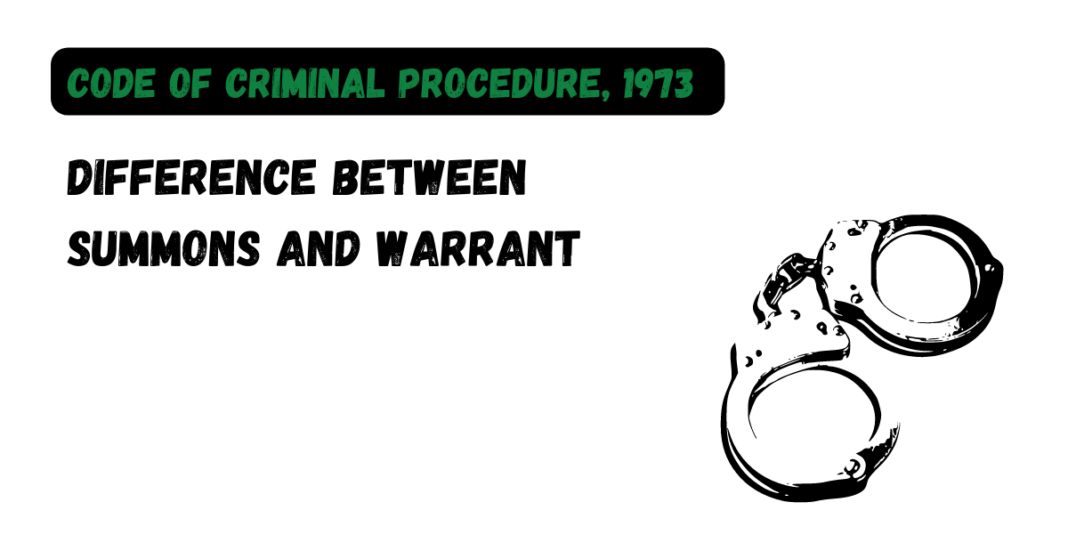| BASIS FOR COMPARISON | SUMMONS | WARRANT |
|---|---|---|
| Nature | A legal document issued by a court that requires a person to appear before it on a specific date and time. | A legal document issued by a court or other authorized officer that authorizes the arrest of a person and their production before the court. |
| Purpose | Generally used to compel the attendance of a witness or a party to a case. | Used to secure the presence of an accused person who has failed to appear before the court or against whom a criminal case is pending. |
| Procedure | Usually issued in the first instance before resorting to a warrant. | Can be issued without issuing a summons if the accused person is likely to abscond or evade arrest. |
| Execution | Usually served by registered post or by hand delivery. | Executed by a police officer who arrests the person named in the warrant and produces them before the court. |
| Use of Force | A person who is summoned is not liable to be arrested or detained by the police. | A person against whom a warrant is issued may be arrested by the police and may have to face the use of force to effect their arrest. |
| Issuance | Usually issued by a court in response to a complaint or a petition, or at the request of a party to the case. | Usually issued by a court after examining the evidence and finding a prima facie case against the accused. |
| Appearance | Person is required to appear before the court on the specified date and time, either in person or through a representative, and provide evidence or testify as a witness. | Person is required to be produced before the court in custody, and is generally not expected to provide evidence or testify at that stage. |
| Notice Period | Usually issued with sufficient notice period, which may vary depending on the urgency of the matter and the availability of the person being summoned. | Can be issued without any notice period if the court is satisfied that the accused person is likely to abscond or evade arrest. |
| Scope | Generally used in civil cases, such as disputes related to property, contracts, or family matters, as well as in certain criminal cases where the person being summoned is a witness or a complainant. | Generally used in criminal cases, such as cases related to serious offences like murder, rape, or terrorism. |
| Consequences of non-appearance | If a person who is summoned fails to appear before the court without sufficient cause, the court may issue a bailable or non-bailable warrant against them, and may also impose a fine or initiate contempt proceedings. | If a person against whom a warrant is issued fails to surrender before the court, they may be declared a proclaimed offender and their properties may be attached by the court. |
| Examples | A witness being summoned to testify in a civil case or a criminal case where they are not accused. | An accused person who has failed to appear before the court or against whom a criminal case is pending. |
Difference Between Summons and Warrant
- A word from our sponsors -





